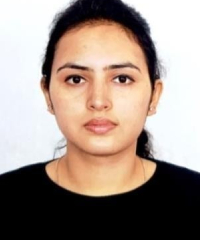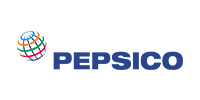MSc Food Technology
Eligibility : BSc/ B Tech with Microbiology/ Biotechnology/ Biochemistry/ Life Sciences/ Food Tech or related subjects with minimum 60% marks
- Duration : 2 years
- Admission Criteria : Shoolini University's multiple choice entrance test, and faculty interaction
MSc Food Technology Research at Shoolini University is closely aligned with the research, academia and industry needs of the booming food industry. With inputs from the industry and alumni working in top positions globally, the curriculum is designed to meet the requirements for research and innovation in the food processing and preservation industries.
We encourage our students to perform research and experimentation in food processing, engineering, packaging, nutrition, preservation, and more. They become part of the industry-academia ecosystem for better research and development activities, thus meeting the demand for food scientists and technologists worldwide.
They learn to look at critical aspects of quality assurance, standardisation of food formulation, additives, hazard analysis and food safety aspects in processed food industries.
Shoolini University is UGC Approved and NAAC Accredited.
Highlights
Our highly experienced and research-oriented postdoc faculty from top national institutes and universities prepares students to become the leaders of tomorrow in a dynamic and competitive workplace.
- Infrastructure Grant from the Ministry of Food Processing Industries (MoFPI) Government of India
- International collaborations for student exchange programs
- Industry-oriented curriculum at par with global standards
- Placements with industry giants
- Specialisation available in Fruit and Vegetable Technology, Meat Process Technology, Cereal and Grain Technology, and more
VISION
The Food Technology program aspires to pioneer a transformative journey in education, research, and innovation. The program aims to prepare postgraduates arming with the knowledge and skills needed to spearhead the future of the food industry. We are committed to nurturing excellence and integrity, ensuring that our alumni emerge as dynamic leaders, driving positive change and innovation in the field of food technology.
MISSION
MISSION1: Empowering diverse students with essential skills in Food Technology for success in top industries and continued progress in the field or related disciplines
MISSION2: To establish connections with top leading institutes for research and entrepreneurship development among students
MISSION3: Facilitate employment and networking possibilities for students by connecting them with industry leaders, alumni, and international networks to help them progress in their career
MISSION4: Delivering research and services to optimize processes, aiming to enhance overall quality of life
MISSION5: To act as a bridge for linking research, academics, industry, and society
PROGRAM EDUCATIONAL OBJECTIVE
- PEO-1: To develop the ability to apply the knowledge of food chemistry, microbiology, sensory evaluation, computing and basic engineering fundamentals to the development, processing, and preservation of safe, nutritious, and high-quality food products
- PEO-2: To develop the capability to apply latest engineering tools and techniques in food processing with respect to social and global framework
- PEO-3: To develop the ability in students to gain knowledge and skills which are necessary in life for the holistic development for meeting their professional needs in varying environment and changing contexts
- PEO-4: To develop the capability to utilize advanced instruments and technologies to process and analyse food products and to solve food safety problems
- PEO-5: To nurture competent professionals instilled with leadership traits and ethical duties.
PROGRAM OUTCOME OR PROGRAM SPECIFIC OUTCOME
- PO-1: Disciplinary knowledge Students can demonstrate comprehensive knowledge and understanding of food technology including the concepts of disciplines such as food chemistry, thermodynamics, rheology, microbiology, plant and animal science, production management, food laws and regulations. Understand how knowledge is created, advanced, renewed and apply in processing and preservation of food
- PO-2: Communication Development of students’ communication skills is planned through various presentations and seminars. Besides that, the students do various assignments such as sprint that enable them to develop skills in public speaking writing and effective’s interpersonal skills. Presentations in each paper enhance their confidence, ability to express themselves, presentation skills.
- PO-3: Research-related skills Students develop a scientific temper and a sense of enquiry through various food technology papers. They have capabilities in asking relevant questions relating to current issues and themes and state hypothesis and rationale for inquiry. Students are capable of using appropriate research methodology for conducting research plans and reporting the results of study undertaken
- PO-4: Teamwork Students are capable of effective working in diverse contexts and teams in classrooms laboratories, student societies, industry and the community. They have basic management skills for independently organizing events, resource mobilization and leading community-based projects, initiatives
- PO-5: Self-directed learning Students are capable of working independently and are able to apply the concepts of Food Technology in an original; creative manner to solve and manage real life issues for the customers and industry. Students develop customized products as per the requirements of customers and need of time
- PO-6: Students are confident of working in diverse socio-cultural contexts. They are able to effectively engage with multicultural groups and teams. They have sensitivities of cross cultural and ethnic diversity that they can apply to different settings. College through a student and faculty exchange program with foreign university helps them to acquire multicultural competency. They are competent to seek higher education in foreign universities
- PO-7: Moral and ethics Student has awareness of ethical conduct in academic and personal situations. Students are developed for understanding and avoiding unethical behaviour such as misrepresentation, plagiarism and environmental misuse and violence. They are formally taught ethics of research and human interventions
- PO-8: Leadership Students have leadership qualities in organizing teams and their mobilization for effective problem solving in different Food Technology aspects. Students apply creative leadership for realization of various goals. As a leader, they are trained to have greater customer sensitivity and connect. They can organize food courts and design business plans
- PO-9: Lifelong erudition Students acquire ability to gain knowledge and skills that are necessary in life for the holistic development for meeting their professional and personal needs in varying environment and changing contexts
- PO-10: Modern tool usage Create, select, and apply appropriate techniques, resources, and modern engineering and IT tools including prediction and modelling, AI to complex engineering activities with an understanding of the limitations
- PSO-1: To provide excellence in the area of food processing and preservations, developments in food ingredients, additives, packaging, processing equipment manufacturing and distribution
- PSO-2: Students understand the relevance and significance of food quality, food safety hazards and their control measures, food preservation and shelf life, foodborne illness and outbreaks. Development of theoretical and empirical knowledge in handling the various types of plant and animal raw materials of foods.
- PSO-3: Students to be global competitive professionals by providing exceptional inter-disciplinary education and research, and ensuring good, wholesome food is produced
- PSO-4: Empowers students to analyse and solve problems of food quality and safety, develop skill in production of food by applying basic principles of science and technology. Provides the self-employment opportunities to the students being trained professionals in food processing and management
MSc Food Technology Career Opportunities
- Food scientists
- Technologists
- Researchers
- Product Engineers
- Quality Analysts
- Research Analysis
|
|
|
|
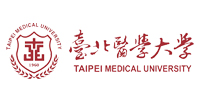
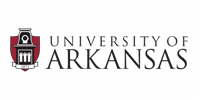
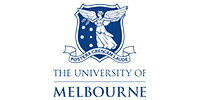
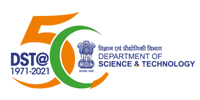
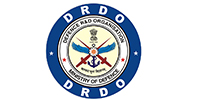
Program Details
Top Faculty
Student Voices
Top Campus Recruiters
Some of the major companies that visit our campus and hire our graduates are:
Frequently Asked Questions
On what basis are the candidates selected for MSc Food Technology (Research)?
Candidates are selected on the basis of an entrance test followed by an interview conducted by the department for MSc Food Technology (Research).
What is the accreditation of MSc Food Technology (Research)?
Shoolini University is NAAC B+ accredited and has UGC certification.
Are exchange opportunities available to students of MSc Food Technology (Research)?
International collaborations for student exchange program include Ankara University, Turkey and Çankırı karatekin University, Turkey.
Who teaches MSc Food Technology (Research)?
Our illustrious faculty includes alumni of global universities like Oxford, NIH, NCI, John Hopkins Medical School, as well as top universities of India, like IISc, JNU, DU and ZSI. Faculty members regularly receive grants from national and international funding agencies. Students also get a chance to work closely on live research projects.
Latest Blogs
Explore the latest insights and updates in our newest Shoolini University blogs!
Still have Queries? Contact Us
Please fill in the form and an expert from the admissions office will call you in the next 4 working hours.

















